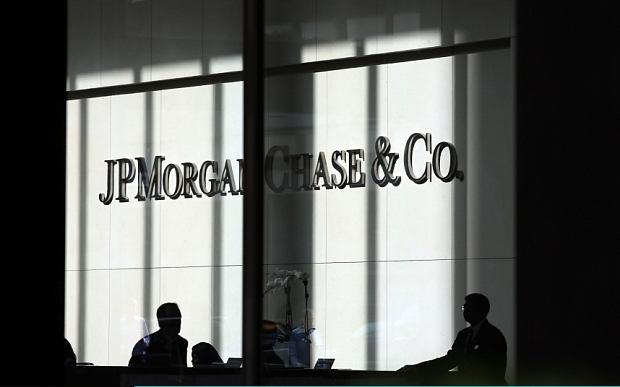-
Tips for becoming a good boxer - November 6, 2020
-
7 expert tips for making your hens night a memorable one - November 6, 2020
-
5 reasons to host your Christmas party on a cruise boat - November 6, 2020
-
What to do when you’re charged with a crime - November 6, 2020
-
Should you get one or multiple dogs? Here’s all you need to know - November 3, 2020
-
A Guide: How to Build Your Very Own Magic Mirror - February 14, 2019
-
Our Top Inspirational Baseball Stars - November 24, 2018
-
Five Tech Tools That Will Help You Turn Your Blog into a Business - November 24, 2018
-
How to Indulge on Vacation without Expanding Your Waist - November 9, 2018
-
5 Strategies for Businesses to Appeal to Today’s Increasingly Mobile-Crazed Customers - November 9, 2018
Fed to Approve “Too Big To Fail” Surcharges
“Regulators should reasonably address risk, but this rule will keep billions of dollars out of the economy, reduce lending to small businesses and families, and put American companies at a competitive disadvantage compared to foreign competitors”, said Tim Pawlenty, the former Minnesota governor and now president of the Financial Services Roundtable (FSR), an organization that represents the big banks.
Advertisement
The Federal Reserve on Monday said that it would apply new rules to oversee GE Capital in two phases, as GE slowly unwinds most of its banking operations as part of its efforts to have GE Capital de-classified as a “nonbank systemically important financial institution”. The plan requires substantially higher capital levels for G-SIBs than those required by Basel III.
“While incorporation of some or all of the capital surcharges would be one way to account for those risks, it is only one among a number of possibilities, all of which we will want to evaluate”, Tarullo said.
The Fed also gave numerical estimates of what the rule would mean for each of the banks.
According to Federal Reserve, as of December 2014, $12.5 billion represents less than 0.6% of JPMorgan’s total assets – in other words, pocket change.
Effective January 1, 2016, GECC must comply with risk-based and leverage capital requirements, the liquidity coverage ratio rule, and related reporting requirements.
The Wall Street Journal reported in late February that J.P. Morgan would begin charging large institutional customers fees for certain deposits, known as nonoperational, citing new rules that make holding money for clients too costly, including the pending capital surcharge.
GE Capital’s attempt to evade the label of “systemically important” is of significant interest to the financial industry and members of Congress who have anxious that the designation is a regulatory “Hotel California”, burdening companies with added regulations but providing them with no way out. The company, based in Norwalk, Connecticut, issues a range of loans for consumers and companies. That would give GE Capital time to carry out its plan of selling off the majority of its assets.
The other banks subject to the Federal Reserve requirements are Citigroup, Goldman Sachs, Morgan Stanley, Bank of America, Wells Fargo, State Street and Bank of New York Mellon.
The Financial Stability Oversight Council, which is headed by Treasury Secretary Jacob Lew and includes other top regulators such as Yellen, hasn’t yet reversed its ruling.
Advertisement
Stricter capital requirements for banks were mandated by Congress after the financial crisis, which struck in the fall of 2008 and ignited the worst economic downturn since the Great Depression.





























